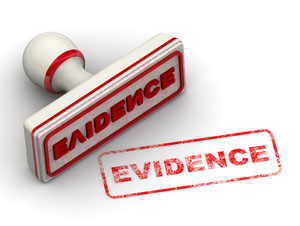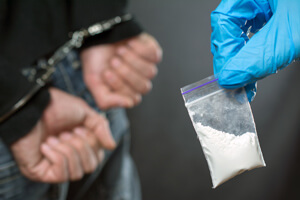4 Quick Facts About Evidence in Virginia Drug Crimes Cases
 Evidence is key in any case involving Virginia’s statute on possession of controlled substances. It can get you arrested, based on the low standard of probable cause needed by police. Officers do not need much to charge you with drug possession. However, evidence can also get you acquitted – either by attacking information presented by the prosecutor or working toward your own defense. Of course, evidence may also lead to a dismissal of Virginia drug crimes charges at many other points along the criminal process.
Evidence is key in any case involving Virginia’s statute on possession of controlled substances. It can get you arrested, based on the low standard of probable cause needed by police. Officers do not need much to charge you with drug possession. However, evidence can also get you acquitted – either by attacking information presented by the prosecutor or working toward your own defense. Of course, evidence may also lead to a dismissal of Virginia drug crimes charges at many other points along the criminal process.
Because evidence plays such a significant role, it is important to understand how it could both harm and help you. You can trust your Virginia drug crimes defense attorney to tackle the legal details, but you might benefit from reviewing four key facts about evidence in possession cases.
-
What a Prosecutor Needs to Prove in a Drug Possession Case
There are specific sets of facts that the prosecution must prove beyond a reasonable doubt to convict you of drug possession. The statute states that it is a criminal offense to knowingly or intentionally have possession of a controlled substance as defined by law. Breaking down these elements, the prosecutor needs evidence that proves:
- You had a state of mind that indicates you were aware of the presence of an illegal drug;
- You had possession of the drug; and,
- That drug falls under the definition of a controlled substance, which falls on Schedules I through VI of the Virginia statute.
-
How the Law Defines Possession
If you have drugs in a pocket, stuffed into your pants waistband, in your wallet, or otherwise on your person, the question of possession is usually clear. Many other cases focus on constructive possession, which can lead to the same charges and criminal penalties. The concept of possession hinges on whether you were able to exercise a certain amount of control over it, such that you had access and the ability to use it.
-
Types of Evidence the Prosecutor May Introduce in Court
The prosecuting attorney will try to present any and all available exhibits, documents, items, and witness testimony to obtain a conviction for drug possession. Examples include:
- The controlled substance itself, which points out the Schedule of drug and amount;
- Drug experts, who can verify that a substance is illegal according to chemical tests;
- Video footage that shows you having actual or constructive possession of a drug;
- Police testimony from officers that detained you, discovered what they assumed to be drugs, and arrested you; and,
- Witness recollections of people who observed that you had drugs on your person or within your control.
- Statements of the accused.
-
How Evidence Can Help Your Case
The examples in #3 above refer to items that the prosecutor might try to introduce in court, but not all evidence is admissible. If the search and seizure by police was illegal under the Fourth Amendment to the US Constitution, it must be tossed out of court as a violation of your civil rights. Plus, some evidence works in your favor. It can either disprove the prosecutor’s case or provide a defense to the charges.
A Virginia Drug Crimes Defense Attorney Can Answer Additional Questions
An arrest for drug possession does not always mean a conviction, so evidence can play a key role in helping you obtain a favorable outcome in your case. The best way to fight the charges is to retain an experienced attorney who will carefully investigate and take advantage of evidence-related opportunities in your defense. If you were charged with drug possession, please contact Shannon & Associates, P.C. right away. We can set up a consultation at our offices in Chesapeake, VA to discuss your legal options.





